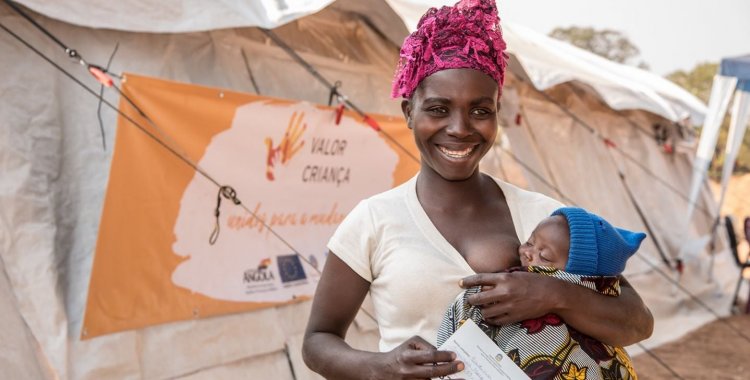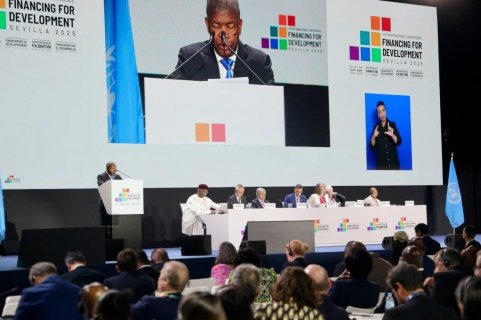These are some of the conclusions of the evaluation report on the cooperation of the European Union (EU) with Angola, published this week, and covering the period between 2008 and 2020, largely coinciding with the presidency of José Eduardo dos Santos, since João Lourenço arrived to power only in September 2017.
The evaluation analyzed the interventions financed under the National Indicative Program (PIN) 2008-2013, with 214 million euros, and the PIN 2014-2020, with 157 million, where non-state actors received an additional 40 million euros, based on a series of interviews with members of parliament, government officials, academics, representatives of the private sector and civil society organisations, international development partners and EU officials in Luanda and Brussels.
The analysis focused on several dimensions, assessing cooperation from the point of view of relevance, efficiency and effectiveness of programs, as well as their impact, sustainability, added value, coherence, complementarity and capacity building and policy dialogue.
"The two NIPs were highly relevant but unrealistic given the scale of EU funding. There was a dispersion around too many objectives and sectors with limited capacities to manage and support such complex programmes. Risk analyzes did not provide realistic options, a since the Government was not truly committed to the stated objectives and reforms", describes the report.
The FRESAN programme, for example, a resilience, food and nutrition security project being implemented in three drought-prone southern provinces of Angola (Huíla, Cunene and Namibe), is seen as "poorly conceived" and "with a reduced involvement of the Government of Angola, which results in a poor performance of the project".
European experts point to significant delays in most projects, particularly at start-up, but also during implementation. "Time efficiency has therefore been generally poor, although for most interventions it has improved towards the end of the period, with the FRESAN project being a clear exception," the report notes.
On the other hand, complex projects, such as the regional projects of the PALOP (Portuguese-speaking African Countries) or those with several components implemented by different partners, had high coordination costs.
The constant rotation of public sector officials was one of the factors that "caused disruptions that led to a reduction in the efficiency of projects, although often only temporarily", the report says.
As for the impact on Angolan institutions, this "varies considerably". There are cases of significant improvements at the level of more technical bodies and some success stories with regard to national policy, especially with regard to children/youth rights and national services (transfer programme).
But changes in political leadership "are a problem that significantly affects the ability of public bodies to stay on a long-term development path", says the EU.
During the first ten years, the main limiting factor was the fact that the Government was not very committed to the EU program, having even limited activities that it did not approve of, the document reads.
On the other hand, capacity building "is complicated and adjustments are often necessary, however, project agreements restrict parties to an approach that may turn out not to be the best," the report says, suggesting more flexible approaches.
Training centers are paradigmatic cases. Although they were intended to satisfy important needs, the actual experience has been mixed: one of the centers never opened; a second center was located in a city with difficult access; and the third only recently started working, so there are no results yet.
"It is unfortunate that such a crucial infrastructure for the country's long-term skills development performs so poorly," criticize the evaluators.
The report highlights, however, that the high-level political dialogue, based on the Partnership "Joint Way Forward", "has evolved in terms of scope, depth and regularity with the Lourenço Presidency".
The dialogue has focused on global policy issues and has not yet addressed a number of project-related issues, "but it can provide the basis for broader development cooperation, extending beyond the public sector".
Regarding Angola, the document stresses that the political system is structured to ensure central control, so reforms are "slow and always with a view to maintaining centralized control", while the economic system remains based on the search for "additional profit", "where a political-economic elite and its foreign partners control key areas of the economy and can use state instruments to protect their interests".
However, he reveals optimistic perspectives for the future: "The space for other economic actors has historically been limited, but it is now gaining more openness. This trend is likely to continue with more macroeconomic reforms and with the expected accession of Angola to the Agreement on EU-SADC Economic Partnership" (Southern African Development Community).
As for the Government, it is "very aware and concerned about the serious economic and, therefore, also political challenges facing the country and is therefore open to measures that address them - on condition that these do not significantly challenge central control ", the report says.







